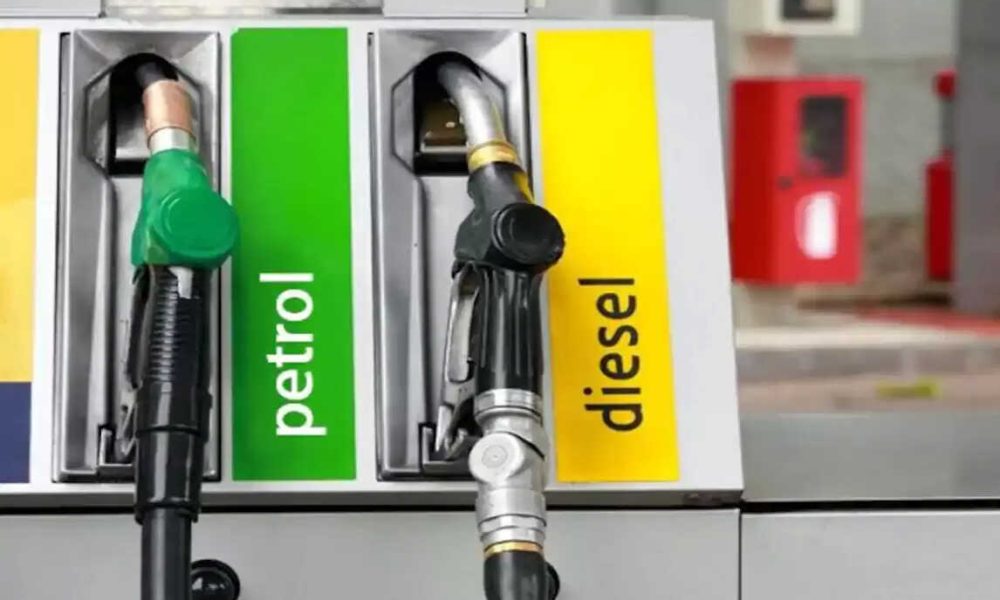The House of Representatives has cautioned that the recent surge in petrol prices could spark widespread social unrest if not promptly addressed.
This warning followed a deadlocked meeting on Wednesday between the Federal Government and labor unions, which ended without a resolution on the rising fuel costs.Last week, the Nigerian National Petroleum Company (NNPC) increased fuel prices at its retail outlets, with petrol in Abuja climbing to N1,030 per litre from N897.
In Lagos, the price rose from N868 to N998, and other parts of the country witnessed similar hikes.
This marked the second price increase in a month, reflecting a 14.8% rise, or an additional N133 per litre.
The price hike has already led to higher transportation fares and food costs, further worsening inflation and intensifying public outcry.
Both the Nigeria Labour Congress (NLC) and the Trade Union Congress (TUC) condemned the increase, demanding its immediate reversal to alleviate the growing hardship on Nigerians.
House Calls for Reversal and Local Refining EffortsIn response, the House passed a motion urging the Federal Government to immediately roll back the increases in petrol and cooking gas prices, emphasizing the need for urgent intervention.
The motion, titled “Urgent Need to Suspend the Increased Cost of Petrol and Cooking Gas and Provide a Stop-Gap Solution,” was sponsored by Minority Leader Kingsley Chinda alongside 100 other members.During plenary, Chinda expressed concern that the removal of fuel subsidies, combined with global oil market volatility and the depreciation of the naira, had severely burdened Nigerians.
He noted that the rising cost of petrol and gas was driving up transportation, food, and healthcare expenses, leaving many families in financial distress.
He warned that unchecked inflation could lead to poverty, social unrest, and economic instability.
“The government promised to rehabilitate refineries and increase domestic refining capacity, but the promised progress has yet to materialize,” Chinda lamented.
The House Minority Whip, Ali Isa, criticized the frequent fuel price hikes, urging the government to avoid policies that suffocate the populace.
“The people are suffering. The government must listen to their cries and provide relief,” he stressed.Similarly, Yusuf Gagdi, representing Kanke/Pankshin/Kanam in Plateau State, said the motion reflects the daily struggles of Nigerians.
He emphasized the need for immediate action to improve citizens’ welfare.
Deputy Minority Whip George Ozodinobi argued that the escalating fuel prices had rendered the newly introduced N70,000 minimum wage ineffective.
“Our farmers can’t transport their produce to the markets, leading to food inflation.
We must review our membership in OPEC if necessary to tackle these challenges,” he suggested.
Recommendations for Economic StabilityThe House directed the NNPC, Ministry of Petroleum Resources, and other relevant agencies to expedite repairs on the nation’s refineries to reduce dependence on imported petroleum products.
Additionally, it called on the Central Bank of Nigeria to adopt monetary policies that would ease the inflationary pressures resulting from the fuel price hikes.
To foster long-term stability, the lawmakers urged the Federal Government to explore alternative energy sources and promote renewable energy solutions to diversify the energy sector.
They also advised state governments to implement policies such as tax waivers to alleviate the economic burden on citizens.
Government and Labour Leaders in Stalemate Meanwhile, a closed-door meeting held in Abuja between the Federal Government and labor unions ended without consensus.
Present at the meeting were key government officials, including the Secretary to the Government of the Federation, George Akume; National Security Adviser Nuhu Ribadu; Finance Minister Wale Edun; and Ministers of Petroleum, Budget, and Labour.
A source familiar with the meeting disclosed that the unions insisted on an immediate reduction in fuel prices, while the government urged them to reconsider.
“Both parties stood their ground, and no agreement was reached,” the source said, hinting that further meetings would follow.
After the meeting, Minister of Information Mohammad Idris acknowledged the ongoing engagement with labor unions.
“This is a continuous process. Government is committed to working with labor to find solutions that benefit all Nigerians,” he said.Finance Minister Abubakar Bagudu defended the government’s policies, stating that difficult decisions were necessary to ensure long-term economic stability.
He highlighted recent GDP growth, contrasting it with economic contractions in countries like Germany and the UK.
“Though inflation remains a challenge, it is not unique to Nigeria,” Bagudu explained. “Energy prices are rising globally, and many countries are facing similar cost-of-living crises.
However, we are confident that these tough measures will yield positive results.”Bagudu added that improvements in the economy were beginning to take shape, with increased investments and better funding for government institutions.
“We believe we have navigated through the most difficult phase and expect better outcomes moving forward,” he concluded.

